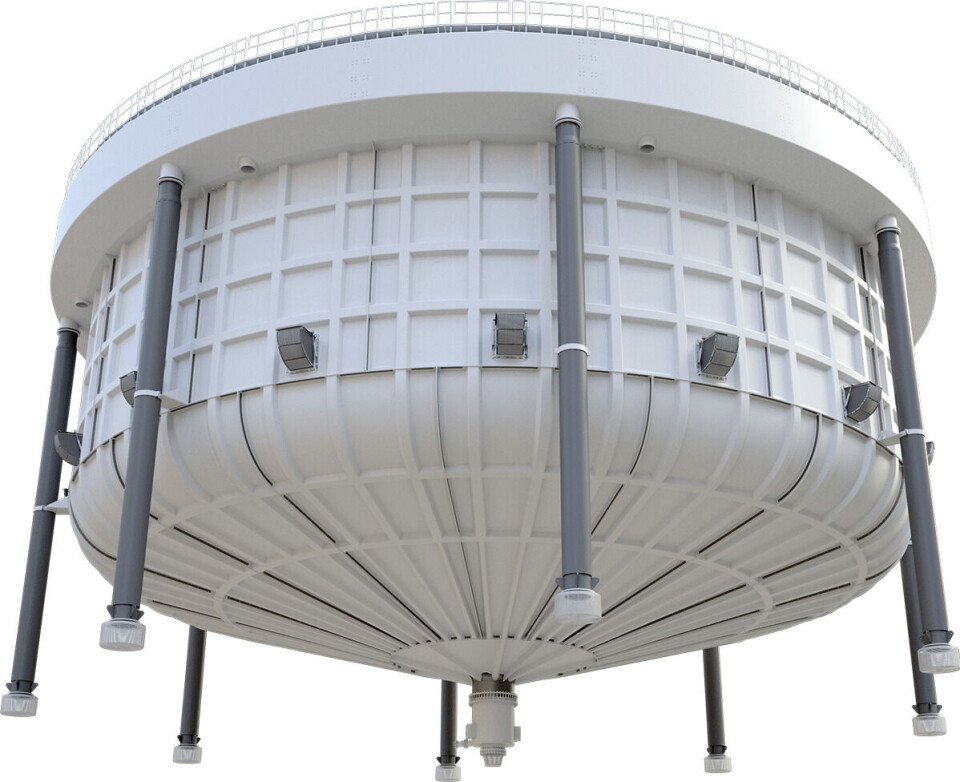
Mowi Scotland plans floating tanks for post-smolts
Mowi Scotland is exploring the potential use of solid-walled floating “Neptune” tanks to grow post-smolts from 120 to 800 grams.
The tanks, which have been successfully trialled by Mowi in Norway, are estimated to reduce the amount of time salmon spend growing to harvest size in net pens by eight months, the company said in a press release.
Built by Norwegian company Aquafarm Equipment, Neptune tanks enable fish farmers to better control water inputs and outputs, avoiding intake of potentially harmful phytoplankton and sea lice and eliminating interactions between farm-raised and wild fish. In Norway, post-smolts are grown to 1kg and fish spend six months in the tank before being transferred to a net pen.
Four tanks
Mowi wants to deploy four Neptune tanks in Scotland, including one at Loch Ewe, where it is closing operations of its net pen farm following agreement with the Wester Ross Area Fishery Board. Mowi said it has approached the board to discuss the installation of the tank and will soon approach stakeholders at other locations.
The company identified Loch Ewe as a candidate for relocation due to limited production capabilities dictated by the enclosed nature of the sea loch and the site’s proximity to sensitive wild salmonid habitats. With subsequent approval of a farm off the shore of Scalpay, Mowi announced closure of Loch Ewe farm in July 2019. The final harvest of organic salmon from the Loch Ewe site took place earlier this month, and Mowi will now relinquish the site lease with the Crown Estate.
Mowi’s environmental manager, Stephen MacIntyre, said: “We are pleased to note that the 2020 seabed survey carried out at the site met the Scottish Environment Protection Agency’s new and enhanced environmental standards and Mowi will implement a post closure monitoring programme to continue to assess the health of the marine environment.”
Staff working at the farm have been provided with other employment opportunities within the company.























































